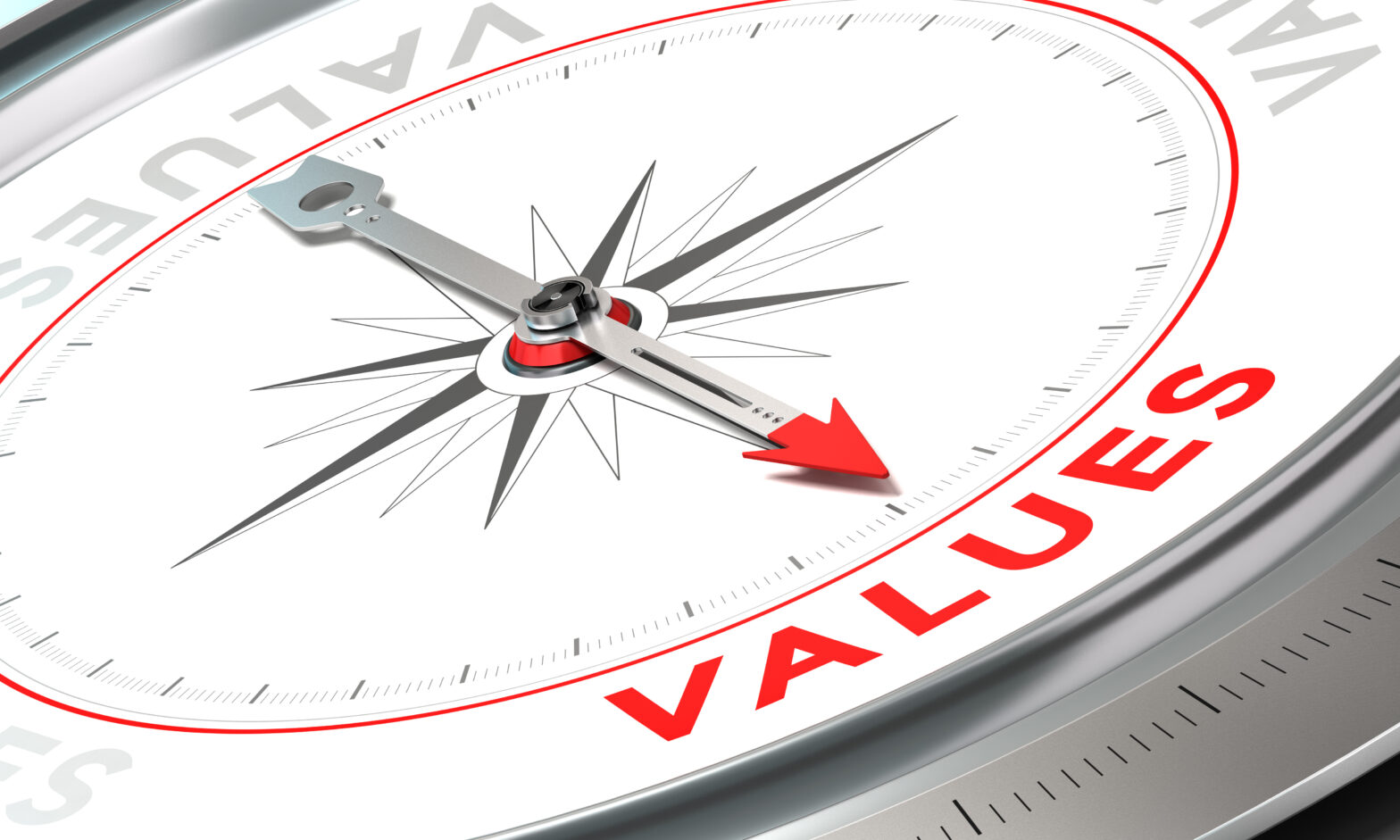‘When your values are clear to you, making decisions becomes easier,’ Roy E. Disney, a long-time senior executive for uncle Walt’s company, once said.
It’s not surprising many of the most successful companies have tried hard to establish their core values. At music streaming service Spotify, they aim to be innovative, collaborative, sincere, passionate and playful. Virgin Media values insatiable curiosity, heartfelt service and smart disruption. It also says it’s ‘straight up’, ‘delightfully surprising’ and ‘red hot’.
These may require some explanation, but they try to capture the aims and character of the organisations. And they do – as Disney promised – make decisions easier by defining success or the way to achieve it. That’s as true for the one-man start-up as the global business. Business leaders and senior managers can weigh everyday choices against their values, determining whether an action will promote or obscure them.
They’ll get nowhere, though, unless their employees do the same.
Among staff, a company’s core values help define the culture the company wants. The extent to which staff behave in line with those values, dictate the culture it has. That culture will influence attitudes, recruitment and retention of staff. It will impact customer service and quality. It will determine how the business is seen and how it acts.
Choosing the right values can itself inspire the behaviour you want to see. Choosing the right people, with the personalities and skills to share and embrace those values, is also essential. Both will help make it more likely your people will reflect your values. But staff also need encouragement day-to-day, to make the hard choices and go the extra mile to stick to those values. This is where recognition can come into play.
Making it real
Businesses can use recognition and rewards to align employees’ behaviour with their values. Recognition can encourage people to consistently live up to them. They can also define those values practically; what does ‘heartfelt service’ mean in a particular circumstance? Rewards provide the motivation and clarity for staff to align their behaviour with the company’s values.
A good recognition and reward program will specifically support core values. If innovation is a value, innovative ideas, creative thinking and imaginative solutions to problems should be rewarded; if it’s superior customer service, the recognition scheme could reward employees for positive customer feedback.
To drive the right behaviours, companies first need to be able to measure employees’ performance and behaviours against the core value. Only then can rewards be made meaningful and go beyond simply following a set process or achieving a sales target.
In some cases, managers can provide that assessment. In others, clients or customers may help. In many cases, peer-to-peer recognition – enabling staff to nominate their co-workers – can both identify behaviours that should be rewarded and increase awareness of core values among staff.
Even so, a recognition programme should recognise people’s differences. People can share value; they don’t share personalities. On the one hand this means the programme should be broad: People have different strengths that will play to the different values a business holds. There should therefore be opportunities for recognition across them. They should also be flexible. Programmes can help define what innovation or customer service excellence might look like in practice. They shouldn’t constrain it.
It’s also easy to overlook that the rewards themselves need to suit the business’s particular employees. There’s a wide range of rewards available, including vouchers, gift cards, e-codes, prepaid cash cards and experiential travel or lifestyle activities continue to grow in popularity. The best range of rewards for a business will vary, depending on its people. Finding out what they value is key to ensuring they uphold what you value.
Iain Thomson is director of Incentive & Recognition, Sodexo Benefits and Rewards Services.





